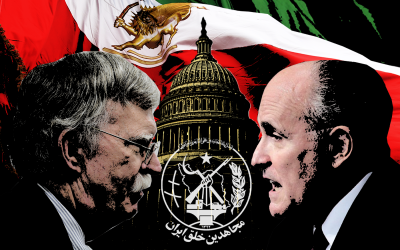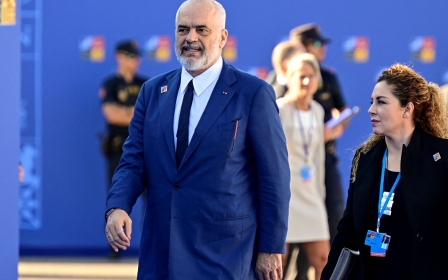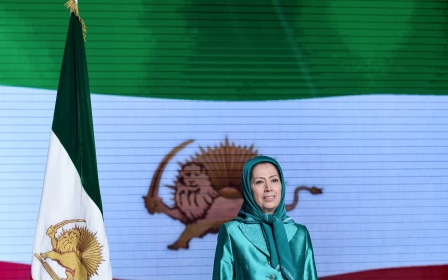Albania accuses Iran of a second cyberattack
Albania on Saturday accused Iran of being behind a second cyberattack, days after it cut diplomatic ties with Tehran over an assault on its digital systems in July.
Albanian Prime Minister Edi Rama said in a tweet that "another cyberattack by the same aggressors" on the country's border system had been recorded, adding that Albania was working with allies to add further defensive measures.
The latest accusations will likely heighten tensions between Albania and Iran, which have traded accusations of damaging each other's national security.
On Friday, the United States imposed sanctions on Iran's Ministry of Intelligence and Security over what it called "malign cyber activities" in Albania on 15 July. Iran has condemned the move and accused Washington of orchestrating the diplomatic fallout with Tirana.
New MEE newsletter: Jerusalem Dispatch
Sign up to get the latest insights and analysis on Israel-Palestine, alongside Turkey Unpacked and other MEE newsletters
"America's immediate support for the false accusation of the Albanian government... shows that the designer of this scenario is not the latter, but the American government," Iran's foreign ministry spokesman, Nasser Kanani, said on Saturday.
On Wednesday, Rama cut diplomatic ties with Iran over the July cyberattack following an investigation with "irrefutable evidence" that Tehran was behind it.
The alleged attack was believed to have sought to paralyse public services and access data and government communications systems but ultimately failed.
Kanani said Albania's behaviour was "contrary to international law and the Vienna Convention on Diplomatic Rights, and the responsibilities regarding its violation fall on the government of Tirana".
'Not a wise policy'
The claimed digital attacks on Albania coincided with the run-up of the World Summit of Free Iran, a two-day event organised by the Iranian opposition group People's Mujahedin of Iran (MEK), whose members the Balkan country agreed to host at the request of Washington and the United Nations in 2013.
'Albania should refrain from becoming a proxy for a domestic power struggle in Iran or putting itself within an international conflict involving other countries'
- Mentor Beqa, professor of international politics
The conference was postponed to a later day because of unspecified "terrorist" threats.
"Albania and the US have declared that they have proven beyond doubt that Iran stands behind such malign cyber activity," said Mentor Beqa, professor of international politics at the Aleksander Moisiu University of Durres, speaking from Albania.
"Of course, Albania has no capacities in place to track and prove such activity, so we have to rely on the information provided by the US, UK and Nato," Beqa told Middle East Eye.
Labelled a terrorist group by Iran, the MEK was also listed as a terrorist organisation by the US State Department up until 2012.
While relations between Albania and Iran have never been particularly significant, Beqa said that relations have been "deteriorating since Albania volunteered to host the Iranian opposition group".
Albania has also been caught up in the wider struggle between Russia and Iran on the one hand and the US on the other.
"Albania should refrain from becoming a proxy for a domestic power struggle in Iran or putting itself within an international conflict involving other countries," said Beqa, warning that the country is "small and vulnerable and as such exposing it towards great power politics is not a wise policy".
Rehabilitating the MEK
The US had designated MEK as a terrorist organisation because it killed several US servicemen who worked on defence contracts in Iran during the shah's reign.
Washington eventually cultivated a secret relationship with the MEK leadership, and in 2003 confined the group to a military base in Iraq, then under US occupation.
US politicians from the Democratic and Republican parties have grown to view the group as a useful tool against the current Iranian government.
In 2013, following growing hostility towards MEK in Iraq amid growing Iranian influence, the US pressured Albania into hosting more than 4,000 members of the group, which the Rand Corporation has described as an "exiled Iranian cult dissident group". As a consequence, that has also brought the ire of Iran to Albania.
After the assassination of Iranian general Qassem Soleimani at the hands of the Trump administration in 2020, Iran's powerful Supreme Leader Ali Khamenei said: "In a very small European country but an evil country in Europe, there are American elements with some Iranian traitors, they got together to conspire against the Islamic Republic."
Those comments were widely interpreted to mean Albania, as host to the MEK. As a result, the Albanian government at the time expelled two Iranian diplomats.
In 2018, Albania also expelled the Iranian ambassador, whom it accused of "damaging its national security". Iran accused the country of acting under pressure from the US and Israel.
Taken together, Albania's hosting of the MEK has placed it in the crosshairs of Iran's leadership and made the country an unusual but new source of tensions between Washington and Tehran.
Middle East Eye delivers independent and unrivalled coverage and analysis of the Middle East, North Africa and beyond. To learn more about republishing this content and the associated fees, please fill out this form. More about MEE can be found here.





